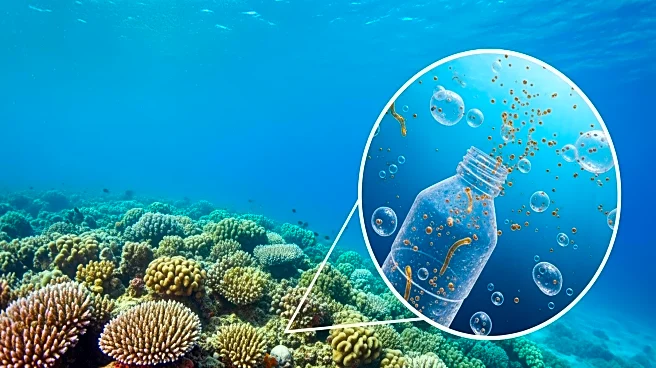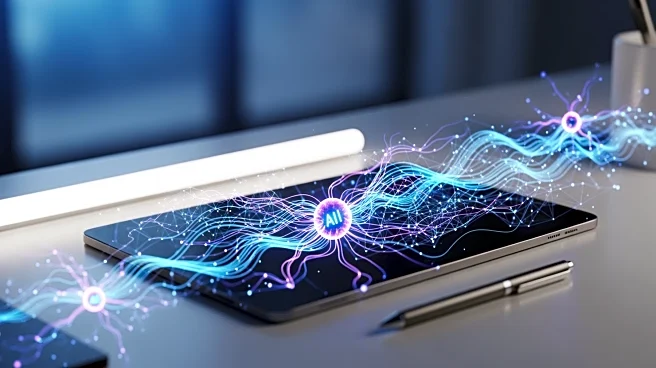What's Happening?
Researchers at King Abdullah University of Science and Technology (KAUST) have discovered bacteria in the ocean capable of digesting plastic using specialized enzymes. These marine microbes are widespread and genetically equipped to consume polyethylene
terephthalate (PET), a common plastic used in items like drink bottles. The study identified a distinct structural feature, the M5 motif, on the plastic-degrading enzyme PETase, which acts as a molecular signature for breaking down PET. This discovery highlights the potential for natural mechanisms to aid in the fight against plastic pollution.
Why It's Important?
The identification of plastic-eating bacteria represents a significant breakthrough in addressing the global plastic waste problem. These microbes could provide a natural solution to degrading plastic waste, reducing environmental impact. The discovery also underscores the adaptability of microorganisms to human-induced changes, offering insights into evolutionary responses to pollution. While the microbial breakdown process is slow, the findings could accelerate the development of engineered enzymes for more efficient plastic recycling, potentially transforming waste management practices.
What's Next?
The research team plans to optimize these natural enzymes in the lab for use in recycling facilities and potentially at home. This could lead to more sustainable recycling processes and reduce the volume of plastic waste entering the oceans. Further studies will likely focus on enhancing the efficiency of these enzymes and exploring their application in various environmental conditions. The discovery may also prompt increased investment in biotechnological solutions for pollution control.















